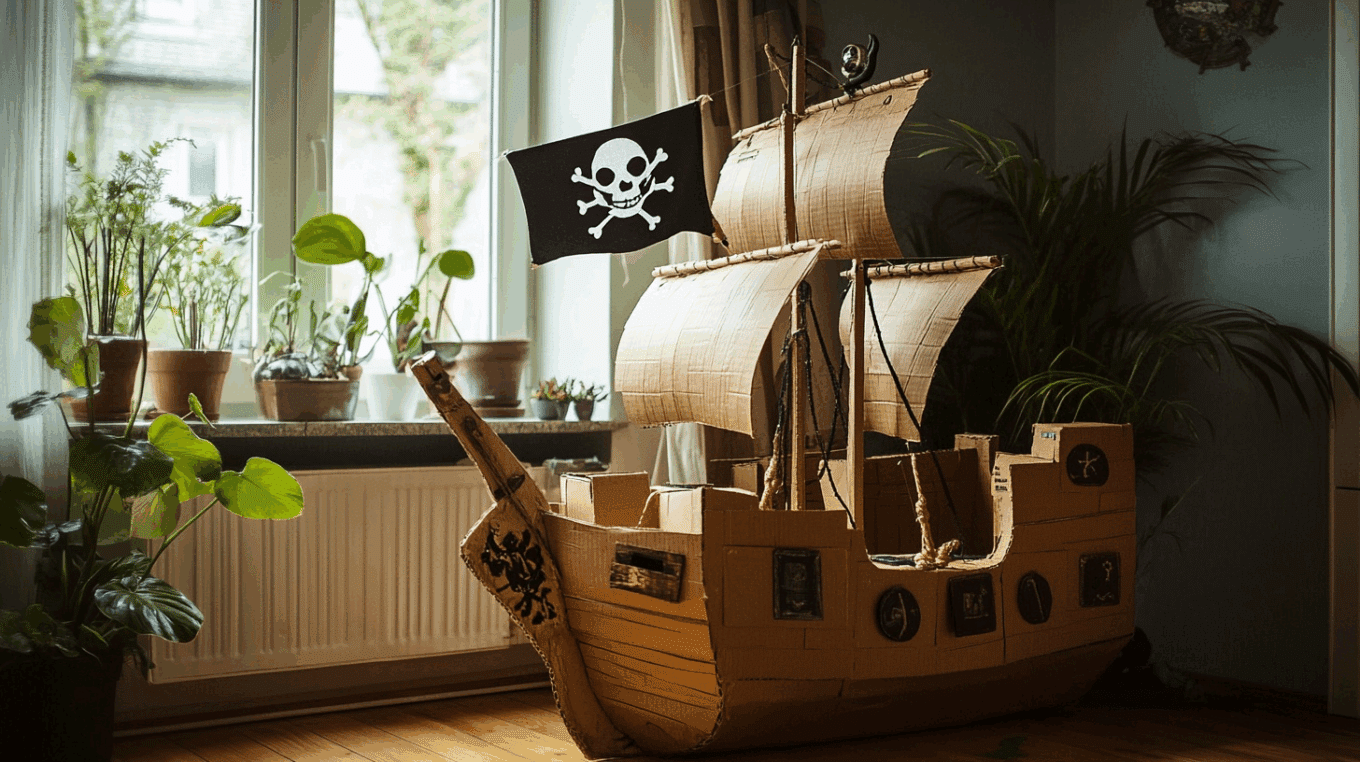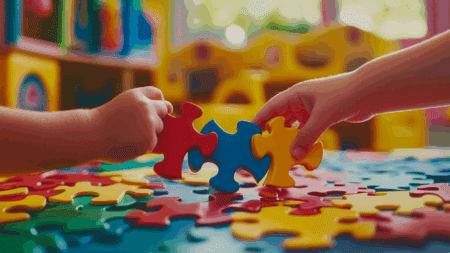Every child dreams of sailing the seven seas and hunting for buried treasure. But what if parents could turn those pirate fantasies into real learning experiences?
Pirate activities offer something special that regular games simply can’t match. These themed adventures help children build creativity while working together as a crew.
Kids learn valuable lessons through storytelling and role-play, all while having the time of their lives.
From treasure hunts to shipbuilding, the right pirate activities can convert any ordinary day into an unforgettable experience that sparks imagination and builds lasting memories.
Why Kids Love Pirate-Themed Fun?
Pirates represent everything children crave in their playtime. The thrill of treasure hunting taps into their natural curiosity and desire for exciting quests.
Kids feel drawn to the freedom that pirate stories offer – no rules, no bedtime, just endless possibilities on the open seas.
This type of play builds confidence as children take on brave character roles.
They practice social skills by working together as crew members, learning to communicate and solve problems as a team. The make-believe world of pirates gives kids permission to think creatively and express themselves boldly.
Most importantly, pirate play lets children safely explore themes of courage and independence.
They can be heroes of their own stories, making important decisions and facing imaginary challenges that prepare them for real-world situations.
Must-Try Pirate Activities for Kids
These twelve pirate activities turn any ordinary day into an exciting sea adventure. Each activity is designed to match different interests, group sizes, and learning goals that parents and teachers want to achieve.
1. Paper Pirate Hats
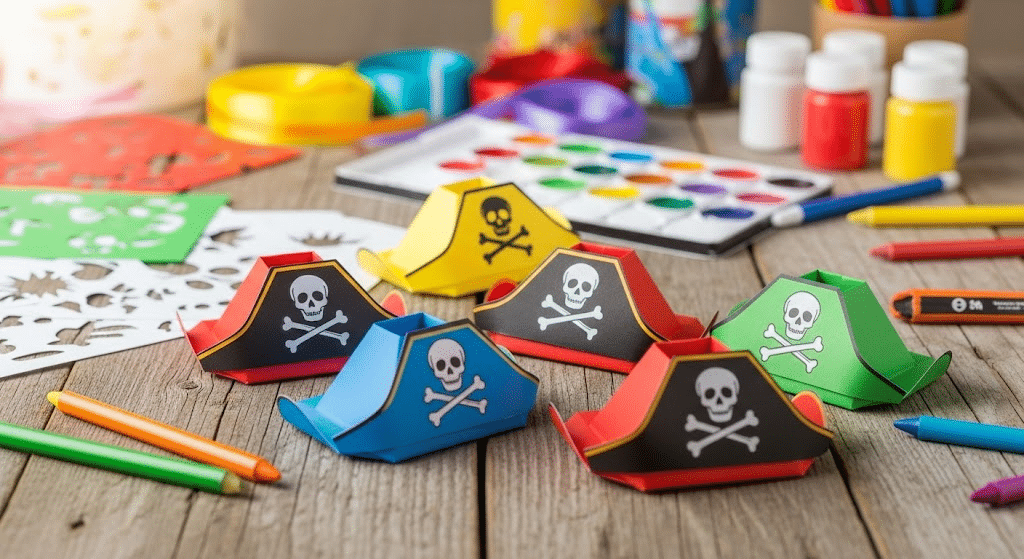
Children create their own captain’s hat using simple folding techniques. Kids can decorate with skull designs and crossbones to make each hat unique. This quick craft gives every child their own pirate identity to wear during other activities.
- Ages: 3-8 years
- Group Size: Solo or group activity
- Materials: Newspaper, scissors, tape, markers, crayons
2. Homemade Treasure Maps
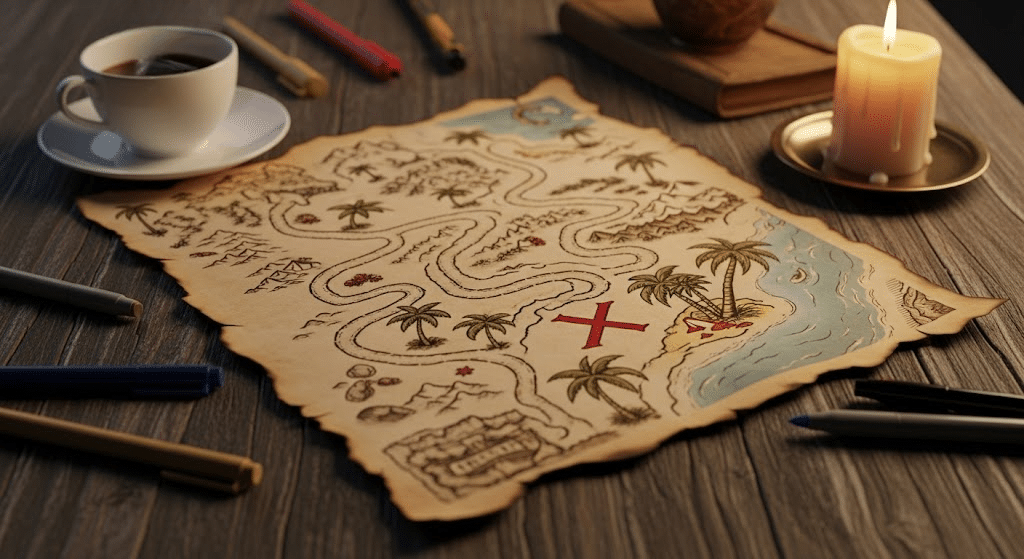
Kids design maps showing where treasures hide around the house or yard. Parents help age the paper with tea stains and carefully burned edges for an authentic look. Children practice drawing skills while creating props for future treasure hunts.
- Ages: 5-12 years
- Group Size: Solo or group activity
- Materials: Paper, tea bags, markers, lighter (adult supervision required)
3. Cardboard Pirate Ships
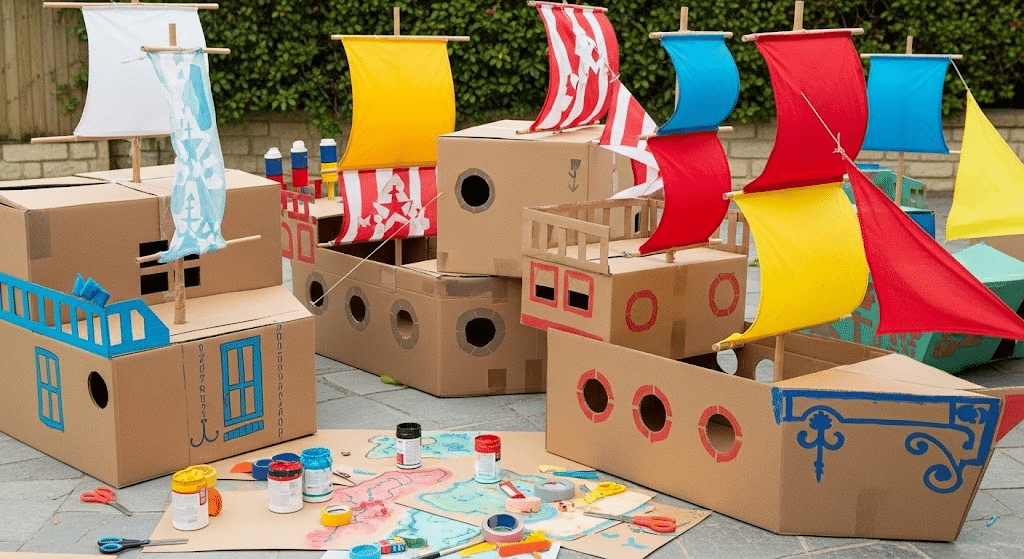
Large boxes transform into sailing vessels where kids can sit and play. Children work together painting hulls, cutting windows, and adding masts with fabric sails. These ships become perfect bases for hours of imaginative pirate play
- Ages: 4-10 years
- Group Size: Group activity
- Materials: Large cardboard boxes, paint, scissors, tape, fabric scraps
4. Pirate Flag Creation
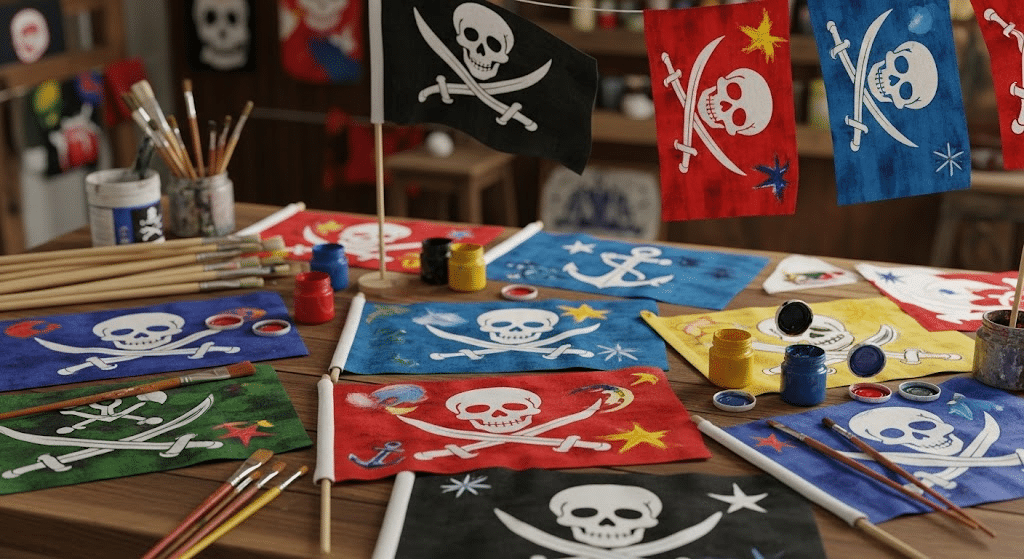
Every pirate crew needs its own flag with symbols representing its values. Kids design original flags using paint brushes and fabric pieces. These flags can be displayed during pirate parties or used in backyard adventures.
- Ages: 6-12 years
- Group Size: Solo or group activity
- Materials: Black fabric, white paint, brushes, wooden dowels
5. Walk the Plank Challenge
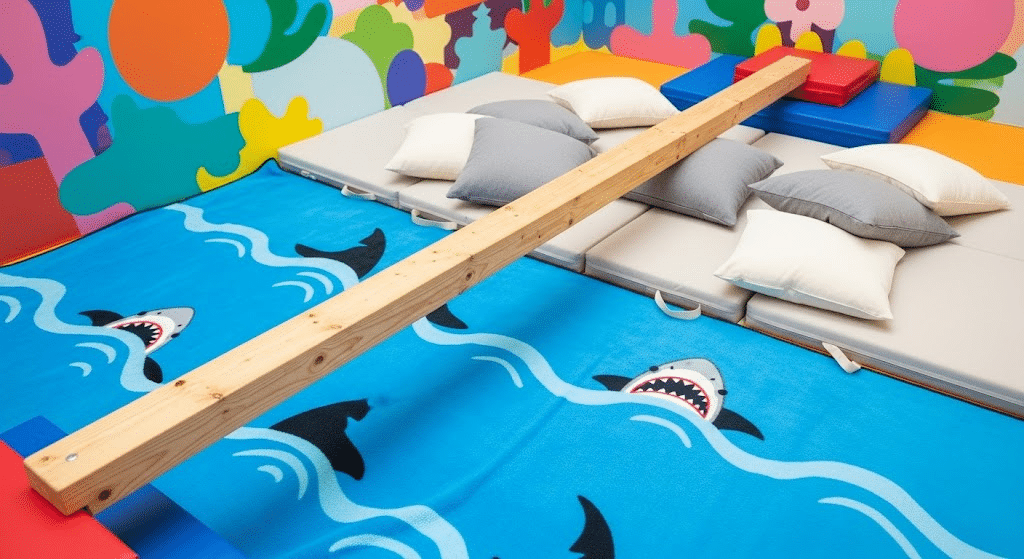
Children cross a balance beam without falling into “shark-infested waters” below. Soft pillows provide safe landing spots while kids practice balance and bravery.
This activity works great for building confidence and adding excitement to pirate parties.
- Ages: 4-10 years
- Group Size: Group activity
- Materials: Wooden plank or balance beam, soft pillows
6. Backyard Treasure Hunt
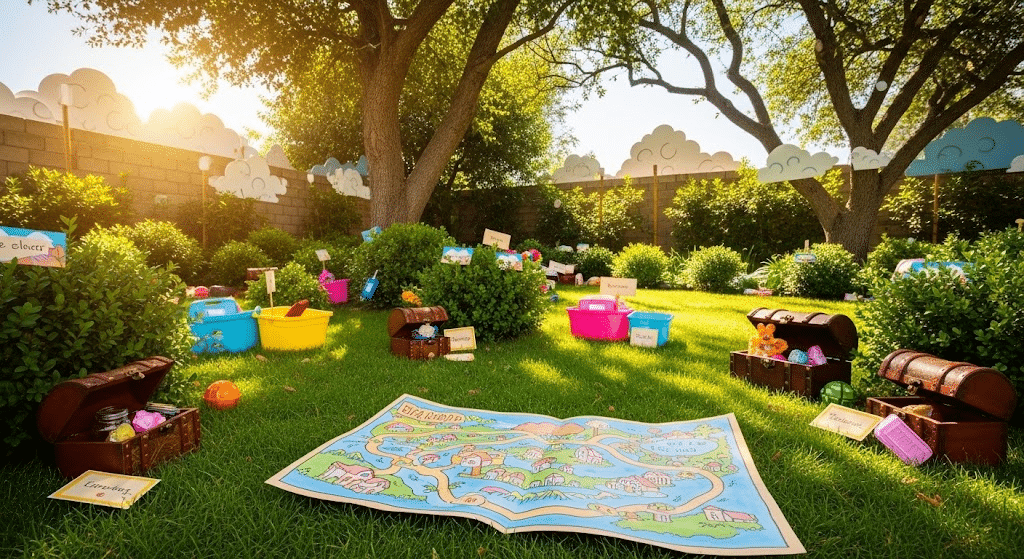
Parents create series of clues leading to hidden treasures throughout the outdoor space. Kids work together solving riddles and following maps to find the final prize. This activity teaches problem-solving while keeping children active and engaged.
- Ages: 5-12 years
- Group Size: Group activity
- Materials: Small prizes, written clues, containers, maps
7. Pirate Ship Obstacle Course
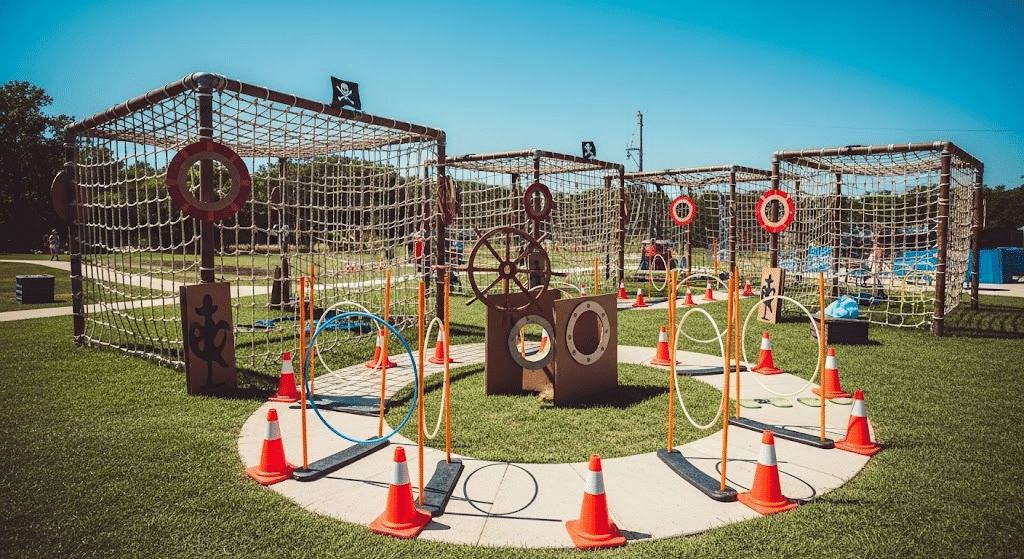
Kids move through stations representing different parts of ship life and sea adventures. They climb rope rigging, steer around island obstacles, and jump through porthole windows. Timing each crew adds competitive fun to the physical challenges.
- Ages: 6-12 years
- Group Size: Group activity
- Materials: Rope, traffic cones, hula hoops, timer
8. Cannonball Toss
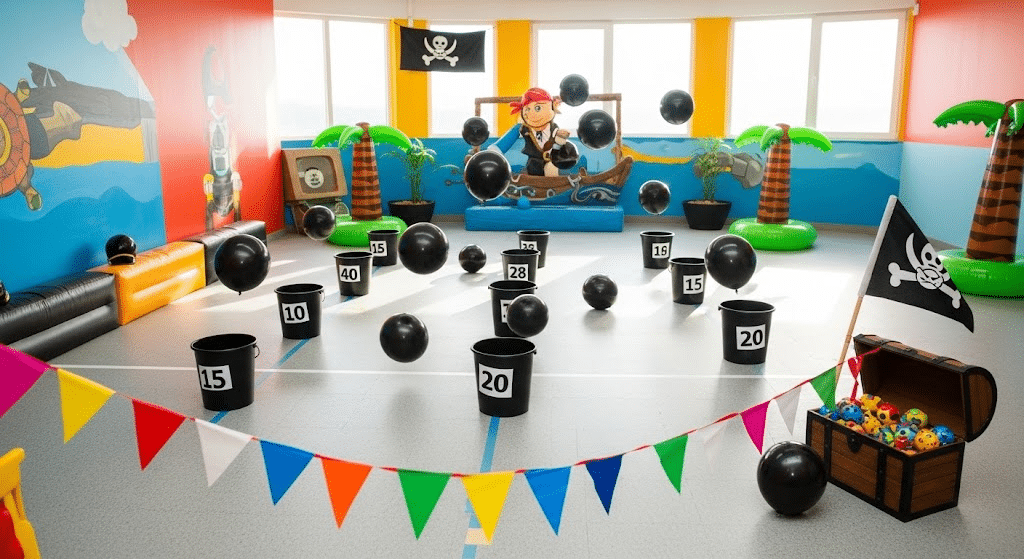
Children aim black balloons at buckets placed at various distances around the play area. Different bucket locations offer different point values for successful shots. This game helps develop hand-eye coordination while maintaining the pirate theme.
- Ages: 4-8 years
- Group Size: Solo or group activity
- Materials: Black balloons, buckets, tape for marking points
9. Pirate Math Treasure Count
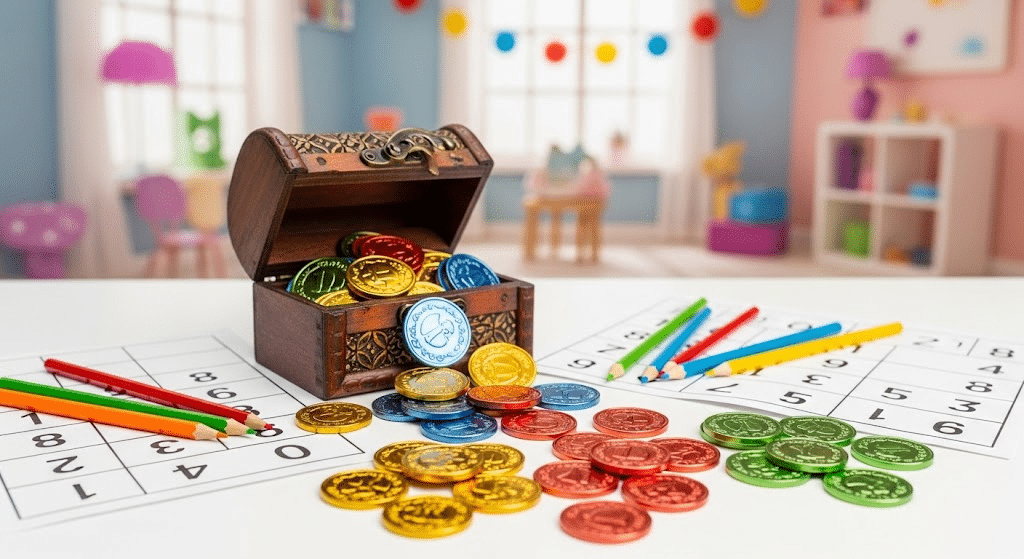
Kids solve addition and subtraction problems to earn gold coins for their treasure chests. They practice counting money and basic math skills while staying in character. This activity makes learning fun by connecting lessons to pirate adventures.
- Ages: 6-10 years
- Group Size: Solo or group activity
- Materials: Play coins, math worksheets, treasure chest container
10. Real Pirates in History
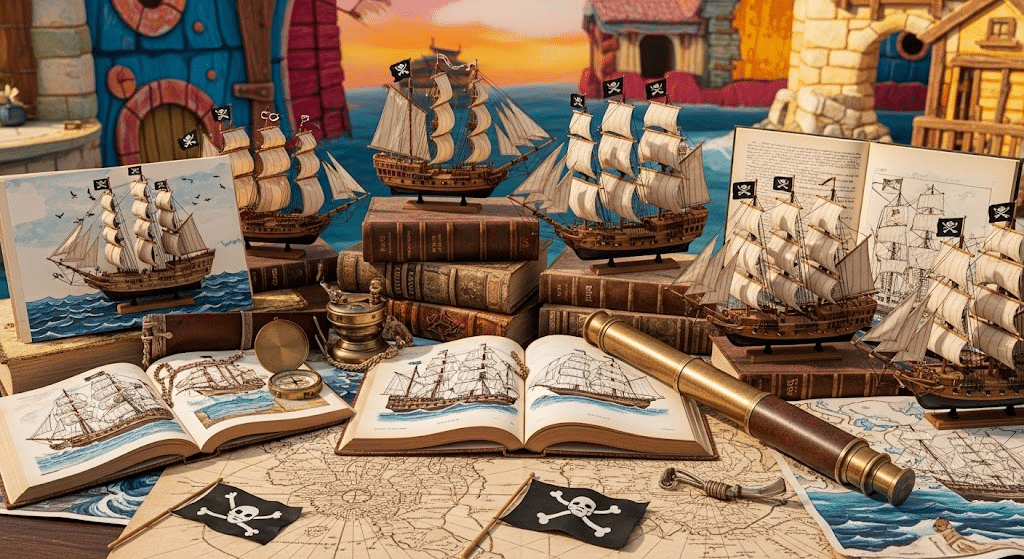
Children research famous pirates like Blackbeard and learn about life on historical ships. They present findings to their crew and separate fact from fiction in pirate stories. This activity builds research skills while satisfying curiosity about real sea adventures.
- Ages: 8-12 years
- Group Size: Group activity
- Materials: History books, pictures, research materials, presentation supplies
11. Pirate Vocabulary Games
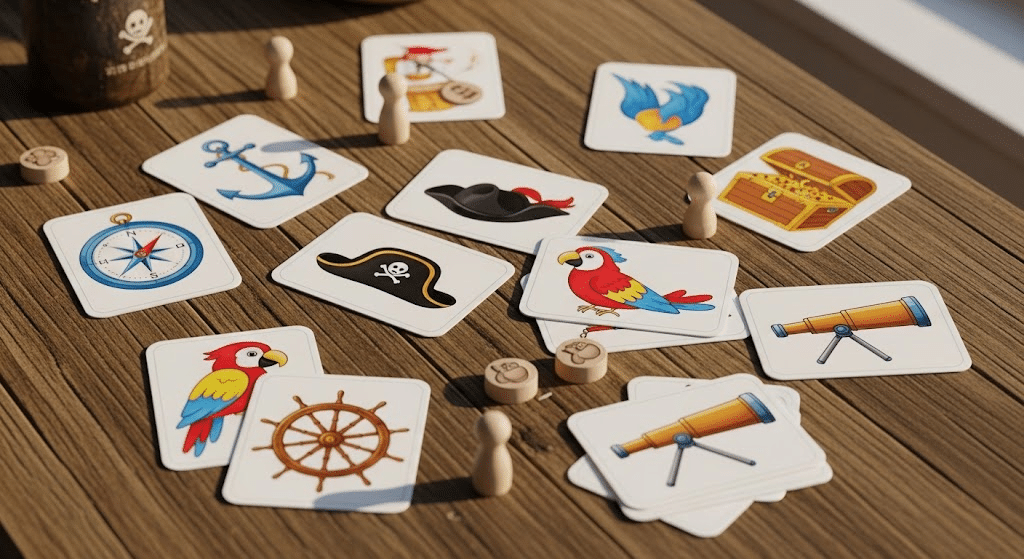
Kids learn nautical terms through matching games and charades using pirate language. They practice words like “starboard,” “port,” and “ahoy” in fun, interactive ways. This activity builds vocabulary while helping children communicate like real sailors.
- Ages: 5-10 years
- Group Size: Solo or group activity
- Materials: Word cards, dictionary, small prizes
12. Message in a Bottle Writing
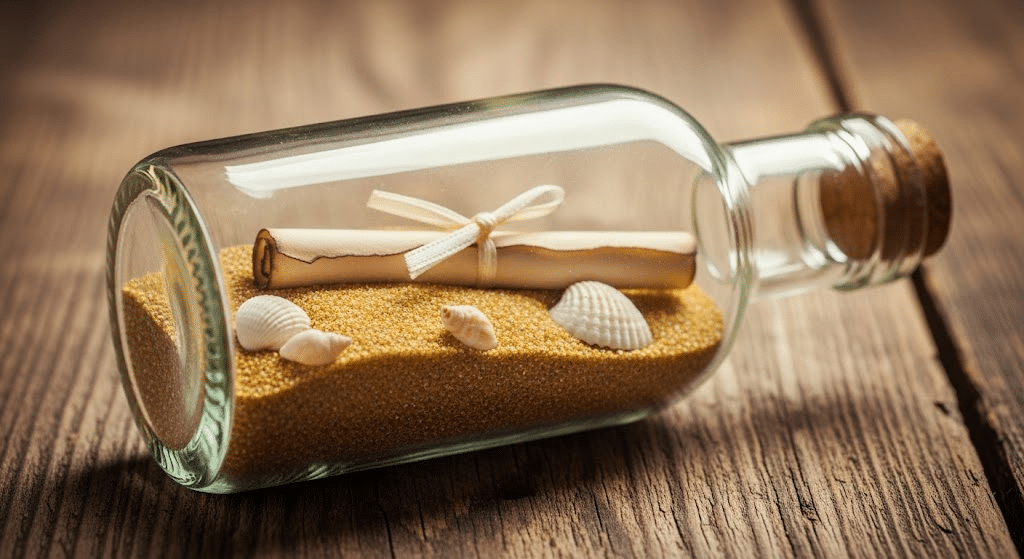
Children write creative stories from a stranded pirate’s perspective and place them in bottles. They practice storytelling skills while creating props for future pirate play. This activity combines creative writing with hands-on craft elements.
- Ages: 7-12 years
- Group Size: Solo activity
- Materials: Glass bottles, paper, pens, sand, ribbon
How Pirate Activities Spark Team Building and Problem Solving
Pirate play does more than entertain kids, it teaches them how to work together as a real crew. These activities naturally bring out leadership skills and help children learn to solve problems as a team.
| Skill | How Pirate Activities Teach It | Real Example |
|---|---|---|
| Cooperation | Kids share materials and take turns during activities | One child holds boards while another tapes them |
| Leadership | Different children lead during various pirate challenges | Quiet students become brave captains during role-play |
| Problem-Solving | Crews face obstacles requiring creative solutions | Kids find new routes when courses prove too difficult |
| Communication | Children explain clues and directions to teammates | Kids describe maps to help crew find treasure |
| Decision-Making | Teams choose strategies quickly during games | Children decide job roles when their “ship” sinks |
Teachers notice that children who play pirate games show better teamwork in school projects. The lessons from pretend sea adventures help kids work together in real situations.
Most importantly, children learn that good captains listen to their crew members and that everyone brings valuable skills to the team.
Themed Ideas for Pirate Celebrations
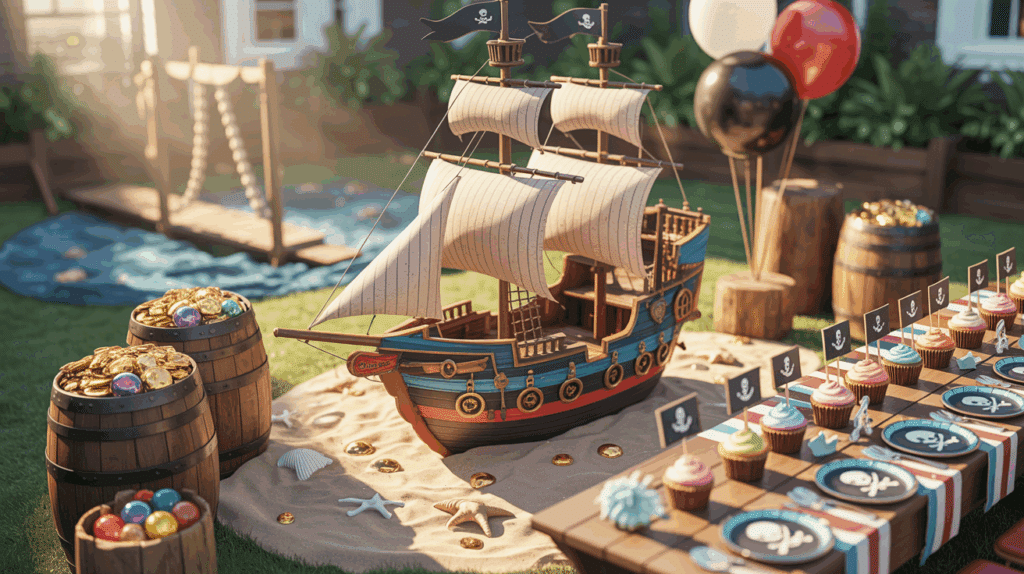
Planning a pirate party change any birthday or classroom event into an exciting sea adventure. These simple decoration and activity ideas help parents and teachers create memorable celebrations that kids will treasure for years.
Quick Decor Setup:
Black and red streamers transform any space into a pirate ship. Hang skull flags and scatter treasure maps on tables. A cardboard treasure chest filled with chocolate coins makes the perfect centerpiece.
Pirate-Themed Food:
Give regular snacks pirate names to add excitement. “Cannonball meatballs,” “ship biscuits,” and “grog” (fruit punch) sound much more fun. Cut sandwiches into ship shapes and serve goldfish crackers as “sea treasure.”
Costume Corner:
Set up a dress-up station with bandanas, eye patches, and plastic swords. Kids love transforming into pirates before the party games begin. Include a mirror so they can see their new pirate look.
Party Games That Work:
Replace “Pin the Tail” with “Pin the X on the Treasure Map.” Turn musical chairs into “Musical Ships” where kids find their vessel when music stops. End with a group treasure hunt so everyone wins together.
Classroom Party Tips:
Teachers can adapt these ideas for school celebrations. Students speak in pirate voices during lessons and work on ship-themed projects. Rearrange desks to create a classroom “ship” for the day.
These party ideas work perfectly for birthdays or any group celebration where kids want to feel like real sea captains.
Conclusion
Pirate activities offer much more than simple entertainment for children. These experiences build confidence, strengthen friendships, and teach valuable life skills through play.
Kids learn to work together, think creatively, and solve problems while having the time of their lives.
Share your favorite pirate experiences in the comments below – other families would love to hear your creative ideas and success stories!

